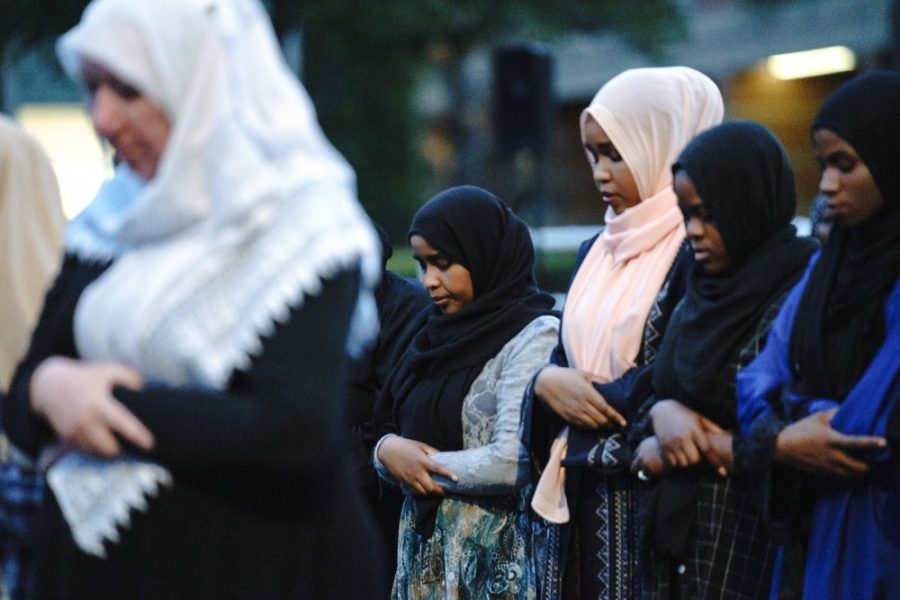I had not expected to encounter incredible violence on a Tuesday afternoon. That day, September 20, had been like all the rest: until it was not. The Daily Wildcat had published an opinions piece about a young TikToker. The story was unfavorable but honest, with the reporter diligently noting each and every questionable, if not outright queasy, comment from a social media personality regarding his platform, his followers and the plight of “the Alpha male.”
This piece was meant to illuminate readers about the idea of toxic masculinity, to dive deep into the world of one man who had been on the receiving end of a slew of comments from many well-intentioned feminists who claimed misogyny and sexism guided his worldview.
This man knew what he was getting himself into when he agreed to speak to a budding journalist. He understood the implications of discussing his life and worldview with a woman who would write down each and every word to publish for the world to see because to be quoted in an interview is to allow oneself to be publicly seen. The reporter had no obligation to paint him in a positive light, nor did she promise to. Her opinions about his words were hers and hers alone to have.
So when my Tuesday afternoon was suddenly bombarded with messages filled with vitriol aimed at my reporter, to say I was shocked was an understatement. I had understood the risk that my reporter was taking when she dared to face a man much larger than her in both size and influence. I understood that she may be at the mercy of his army of teenage fans, left to be preyed upon by boys whose favorite pastime is leaving anonymous comments on the Instagram profiles of young women; but I did not expect the sheer, red-hot hatred that was fired at this reporter, a young woman of nineteen.
To be a journalist – yes, even a student journalist – is to place yourself in a position of vulnerability with every word written, each piece published. To be a woman and a journalist is to place yourself on the chopping block, ready to be skewered for even the slightest hint of criticism of a person or entity with any shred of power.
The messages my reporter received were vicious. My inbox couldn’t keep up with the barrage of information. I finally had to go to the source material myself, my reporter’s social media page, to see the full scope of the venomous threats against her. Complete and utter strangers (most of whom, based on a search in the University of Arizona’s directory, do not even attend our school) took to the keyboard to express their innermost filthy thoughts about the reporter and her article.
To list all the comments here would be foolish. Most would not read them, and those who did would find themselves much more depressed and disgusted for having done so. However, I feel it is my duty to at least share with you a personal favorite comment of mine, one that was sent to the reporter’s personal phone number, a number that was publicly leaked following the release of the article. It read: “i hope when our society wakes up again you are lined up and shot.”
Lined up and shot.
This threat, one that is so vile, it’s difficult for me to even type it, was hurled at my reporter for writing an article in which a man was portrayed in an unfavorable light. She was the recipient of hundreds of comments just like this one, along with phone calls, voicemails and text messages.
I can’t speak for the reporter, but I can speak for myself, and I can say with confidence that I was terrified. I was terrified for her as a reporter, yes, but more terrified because she was a woman, a woman who had enraged a group of men hell-bent on defending an influencer they did not even know.
I am writing this on Oct. 13, twenty-three days after the article was published and the death threats began coming for my reporter. This delay is unacceptable, and it is appalling for both myself as her editor and for our news organization to wait to release a statement regarding such an event. I only can offer this as an excuse: We (myself and the Editorial Board here at the Daily Wildcat) contacted the Dean of Students to alert them of this issue and demanded consequences for those among the harassers who were, and still are, students at the university. At minimum, we asked that the Dean of Students work with us to release a statement deploring the harassment the reporter has experienced. Twenty-three days later we have still not received a response to that email from their office. Twenty-three days later we are still ignored by the university that would not even deign to release a statement regarding threats on a young female student’s life. I should also add that the reporter filed a police report with the university police that did not go anywhere despite the reporter, myself and members of the Daily Wildcat’s Editorial Board saving hundreds of screenshots of the comments that included names and phone numbers.
While waiting for a response from those who hold the most power in our campus community, I could only pray that something would happen, that someone would act, that someone would do something. Yet I write this almost a month after the article’s publication with only silence echoing around me.
Violence against women is nothing new. Threats and harassment and verbal beatings have followed us for centuries. I have experienced my fair share of it myself, as I am sure many of the female readers have too. It is an epidemic that I fear might never end; but still, I hoped. I hoped that, maybe this time, maybe with the backing of a university almost 45,000 strong, I would not have to sit alone in my bedroom reading about all the ways in which a female reporter who attends that very university could be hurt. A reporter who could have been me, who could have been you.
As the days following the article’s publication increase, I urge you to not forget about the woman who put her safety on the line to say her piece about a man who agreed to be recorded and written about — regardless of what the article said. I urge you to pay attention to the other women who are hurt for speaking their minds, who are told that they should be killed for putting pen to page, whether their voices are cutting or kind.
This violence will never end unless we make it. It will never stop unless we realize that the natural step after condemnation is not brutality but conversation. A woman, a person, must be able to engage in public discourse, in criticism, without fearing for their safety. Otherwise, we will have no hope left.
So please, let us make it end.
Follow the Daily Wildcat on Twitter









